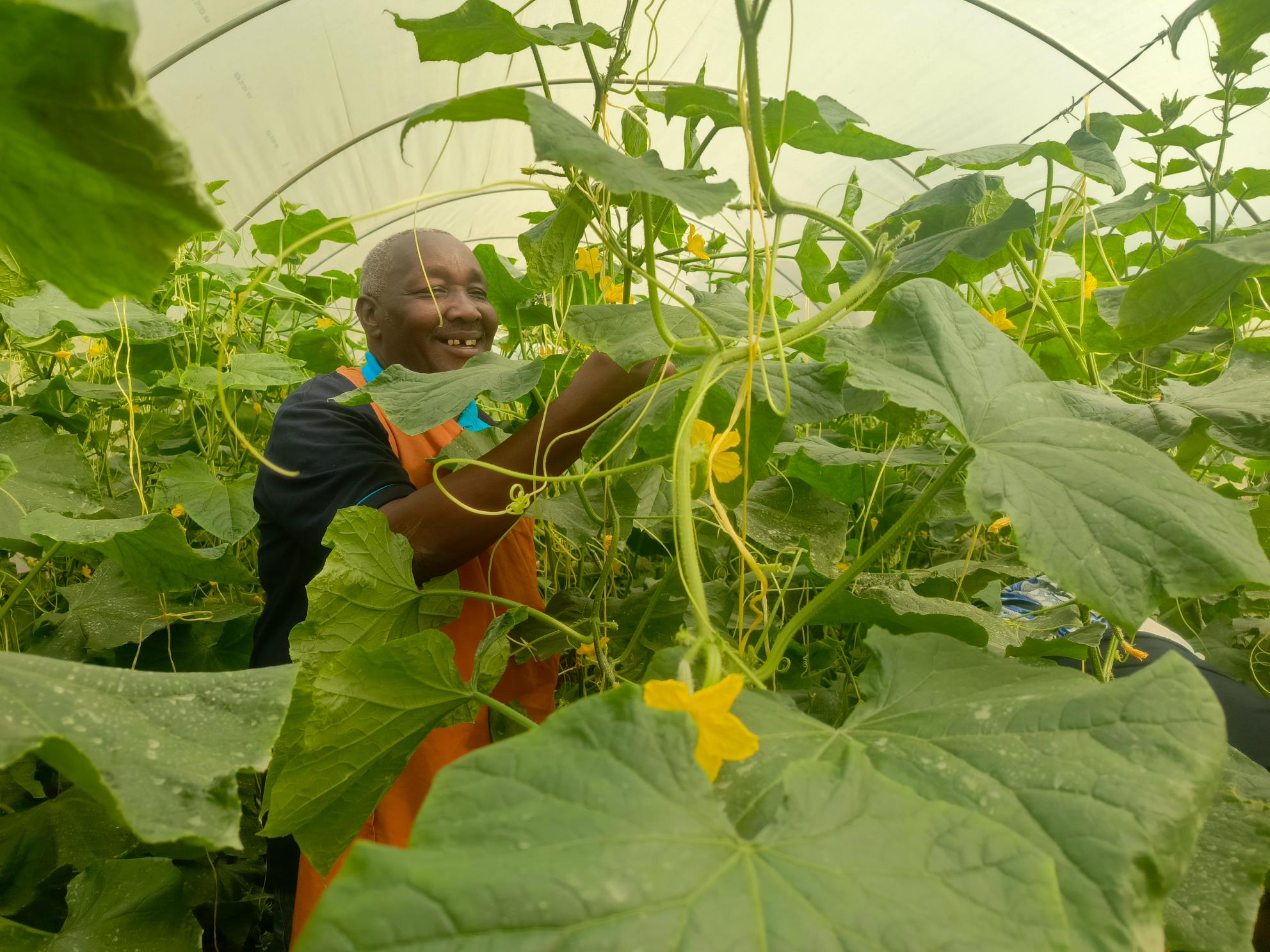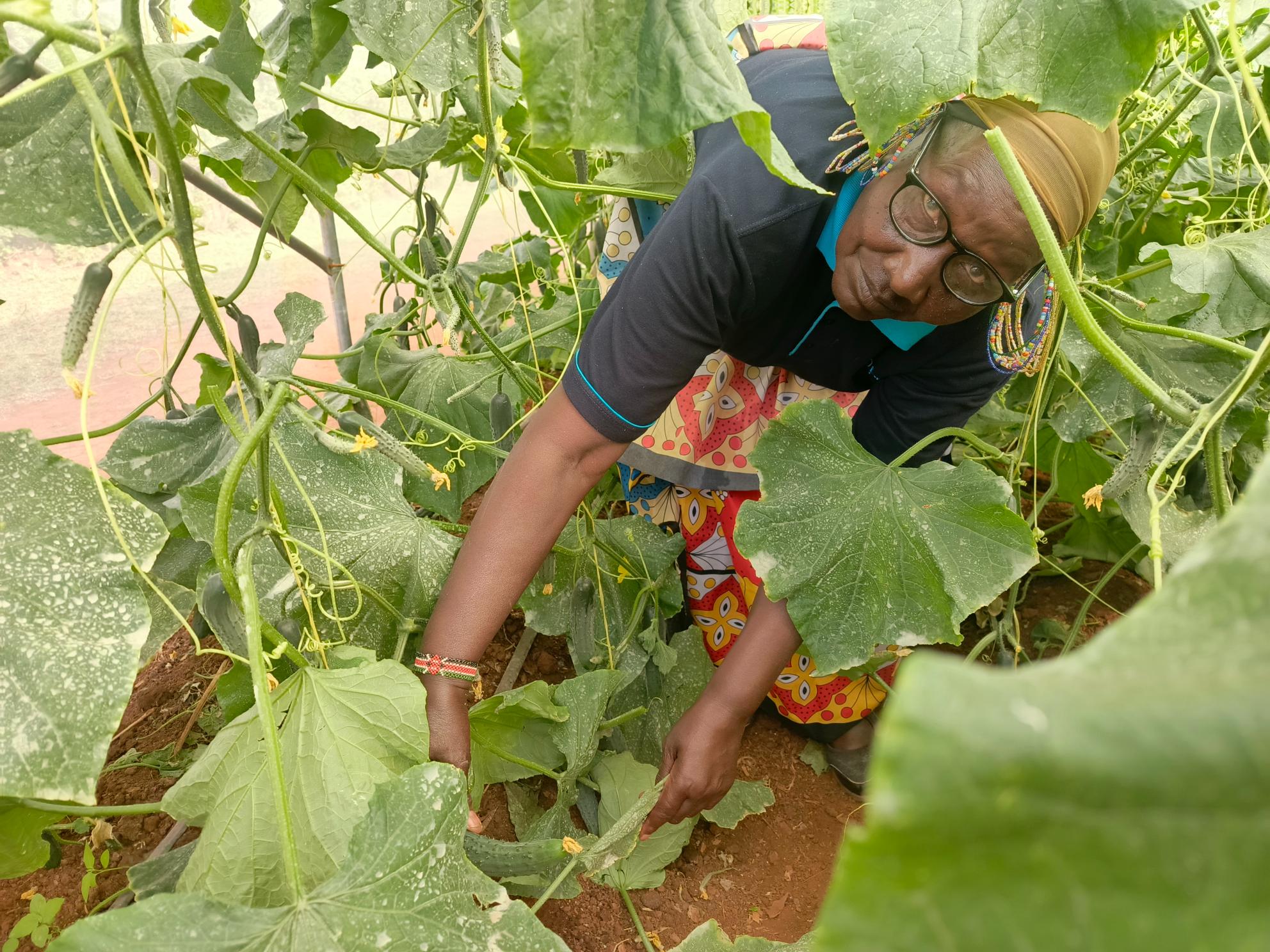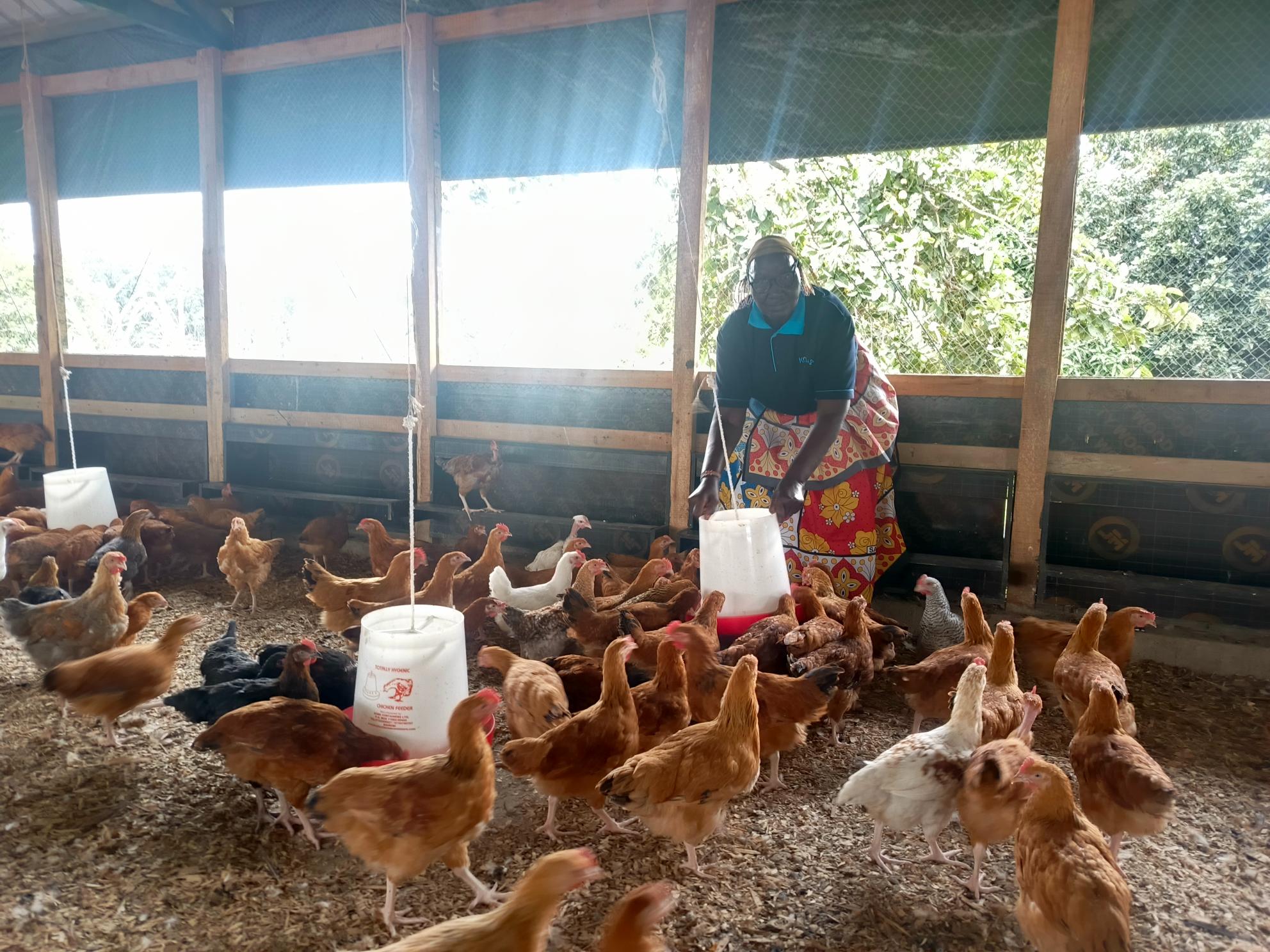



Farmers in Kahero village in Kiambu are benefiting from an agricultural partnership with the Korea Programme on International Agriculture.
The Sh2 million Kopia initiative in Karai ward is empowering smallholder farmers through poultry and greenhouse cucumber farming, enhancing food security and creating new income sources.
The Korean programme, through its Kenya Centre, has partnered with the Kahero Village Farmers Group to promote sustainable agricultural practices.
Dr Eunha Yoo, director at Kopia’s Rural Development Administration (RDA), said the collaboration transfers agricultural expertise to local farmers.
“Kopia Kenya Centre is supporting Kahero village with technical know-how in poultry and cucumber farming. Our goal is to strengthen this cooperation and continuously improve agricultural technology,” Yoo said.
She said while cucumber is being grown in protected greenhouses, farmers face challenges due to the complexity of this method.
“Greenhouse farming isn’t easy for them. They need continuous technical support so they don’t give up when challenges arise,” she said.
Yoo cited the importance of climate adaptation and said Kopia is developing new crop varieties and customised farming technologies suitable for Kenya and other African regions.
Kopia Kenya Centre director, Kim Ji Gang, said the organisation has signed a Friendship MoU with Kahero Village Farmer’s Group.
“Our role is to support cultivation, marketing, and capacity-building, while the farmers provide demo fields, participate in practical applications and evaluate progress,” Kim said.
Kopia is offering training in poultry health and feed management, greenhouse cultivation techniques and marketing strategies.
Looking ahead, Kim said support will extend to post-harvest management, improved packaging and branding to boost market competitiveness.
“Most smallholder farmers sell to middlemen at low prices. We want to create direct market access so that farmers can earn more,” he said.
They aim to make Kahero a model village for high-quality cucumber and poultry farming.
“To achieve this, we’ve invested about Sh2 million in the two projects.”
He said farmers still face challenges, especially with poultry diseases and feeding practices, but Kopia plans to provide continuous support.
Kahero Village Farmers Group comprises 31 members. Group chairperson Joyce Njoroge said the partnership began when Kopia sought local farmer groups for collaboration.
“Each member received five chickens at the start. Earlier this year, we also began growing cucumber in a greenhouse,” Njoroge said.
Kopia supplied 300 chickens, feed and cucumber seeds. Currently, 21 members focus on poultry, while 10 grow cucumbers.
“Most members now have at least 12 chickens at home. We sell eggs locally at Sh15 each and cockerels go for as much as Sh1,200,” she said.
Njoroge expressed hope they could eventually build their own greenhouses and poultry houses to scale up the venture.
“Our group includes four men, three youths, young mothers and older women. We want to show young people that farming can be a profitable and dignified livelihood,” she said.
Ward administrator Mwaura Kagwe praised Kopia’s efforts, saying poultry is common in many Kiambu households.
“The greenhouse and poultry facilities built by Kopia are a milestone. Cucumber farming is not common here, but it has huge market potential,” Kagwe said.
Kopia’s approach aligns with Kiambu’s agricultural support policies, such as providing certified seeds, fertilisers and poultry to farmers.
Kagwe urged farmers to maintain high standards and implement their training.
“They must keep records, adopt best practices, and fully utilise this opportunity to improve their livelihoods,” he said.
Farmer Karanja Kibe described the project as a game-changer for the community.
“If we apply the training on cucumber cultivation, we can harvest 400 to 500 kilos weekly. We have ready markets in places like Kangemi, Kawangware and Wangige,” he said, adding that cucumber could become “the next gold” for farmers.












